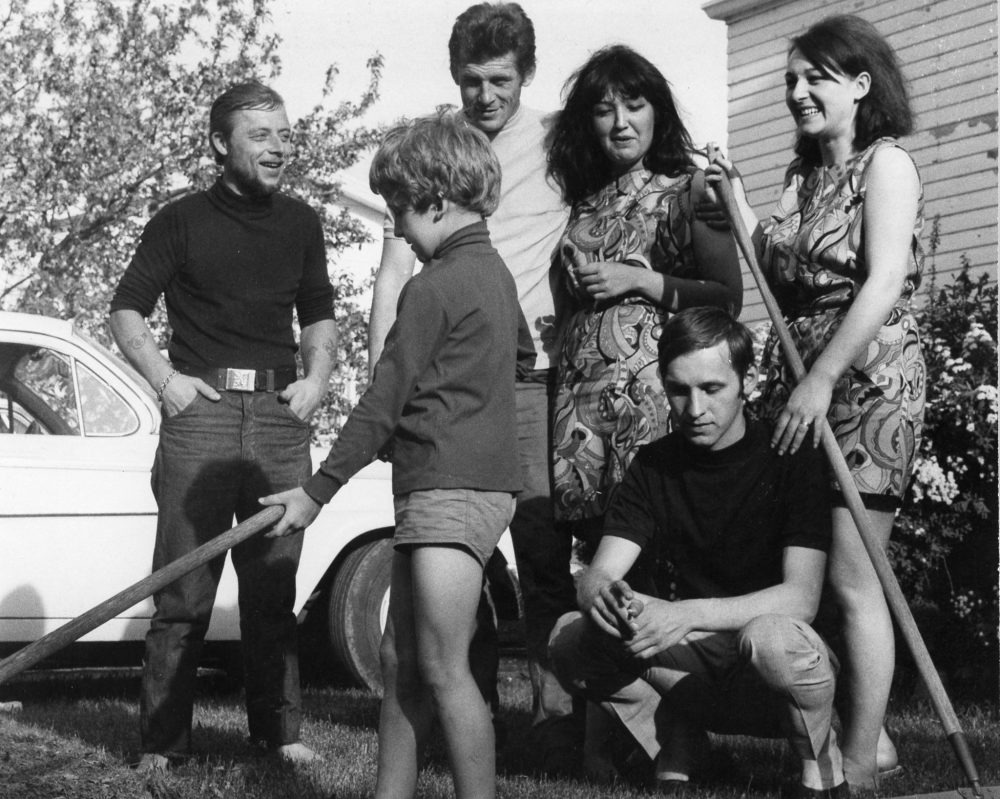COLUMN: Carillon Flashback May 29, 1969 – Czechoslovakian family reunited in Steinbach
Advertisement
Hey there, time traveller!
This article was published 15/04/2024 (439 days ago), so information in it may no longer be current.
The Russian military invasion of Czechoslovakia in late August of 1968 prompted a mass exodus of people from that country. Many of these refugees came to Canada and the United States, seen as the most promising places to make a new beginning.
Several, including Bohumil Hrubes, came to southeastern Manitoba last fall to start a new life. He escaped from behind the Iron Curtain and then used an ingenious scheme to bring his wife and seven-year-old son to Canada as well.
Hrubes told The Carillon in January that he had no regrets about leaving Czechoslovakia. That wasn’t quite true at the time, but his regrets were of a kind he chose to keep to himself.

Hrubes’ regrets centered around the fact that he had been forced to leave his wife and seven-year-old child behind. He missed them, yet never mentioned them to anyone in Canada while he was working on a scheme to bring them here.
A heart-warming reunion with his wife, Marcella, and son, Bohumil Jr. took place in Steinbach, May 13. Sitting around the kitchen table with his family and friends, who also fled from Czechoslovakia after the invasion, Bohumil describes the plot he used to get his wife and son out of the occupied Czech nation.
“For Marcella to get out of Czechoslovakia, we had to be divorced and for her to to get into Canada, we had to be married.”
Mrs Hrubes applied for a divorce in Czechoslovakia, saying her husband had run off and she didn’t know, or care, where he was. The divorce was finalized in early spring, making it easier for her to obtain a visa to travel outside Czechoslovakia.
Bohumil had made arrangements with an uncle in Austria, to write Mrs Hrubes, inviting her and her young son to visit him in Vienna. Marcella was granted a three-day visa and she and her son went to Austria.
Bohumil had also been in touch with the Canadian Embassy in Vienna, asking permission to bring his wife and son to Canada,
“I had no divorce papers, so I told them, alright, if I’m still married, send my wife here and that’s what finally happened.”
Marcella’s divorce papers are still in force, however, so the couple plans to remarry in June.
“I truly have no regrets now,” says Bohumil, as he looks across the table at his wife during an interview this week.
He says he had to work one hour to earn enough money to pay for the shirt he’s wearing, but in Czechoslovakia, under the Russian regime, it would have taken a week.
Life in Prague had been comparatively good for Hrubes in the six months prior to his escape. He had his own truck and operated a successful delivery service, hauling general freight. His profitable business came to an abrupt halt soon after the Russians began running his country. Officials informed Hrubes he would have to pay heavy taxes on his truck and on the extra truck, which he used only for spare parts. In addition, 50 percent of his profits were to be turned over to the government.
In early November, Hrubes made his decision to leave, while travel restrictions were still relatively relaxed. People were allowed to leave the country on short visits.
He managed to convince an immigration official to grant him a three-day pass to Austria and after several hours on a train, Hrubes faced Austrian immigration officials, and after considering his options decided to come to Canada.
In Winnipeg, Hrubes met several other young Czechoslovakians who had left their country by similar devious means. Collectively they tried to find employment in the city but were unsuccessful. When they learned of job vacancies in Sprague, they moved to South Junction and commuted to work daily.
Since then, Hrubes has moved to Steinbach and is employed as a truck drive with Penner Transfer.
– with files from Bob Smith
